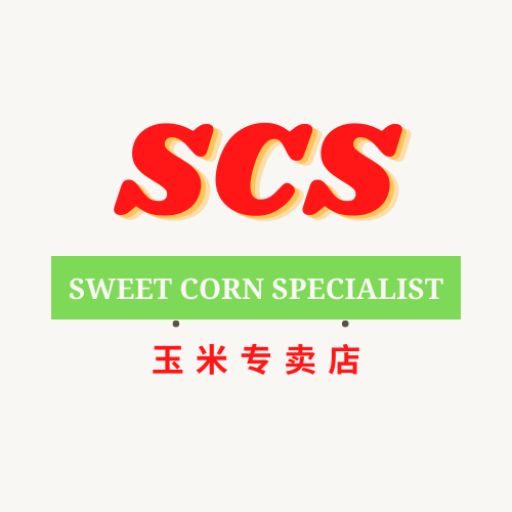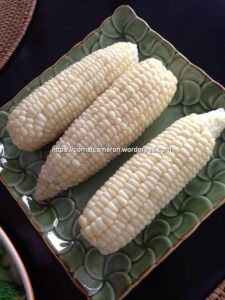Baby Corn Nutrition
Baby Corn Nutritional Values
Baby corn provides valuable nutrition which lacks in most people’s diets. It is extremely low in fat as well, which can help with their weight loss goals. Baby corn is high in potassium and folic acid. It also has a better glycemic index than regular corn, making it a great substitute.
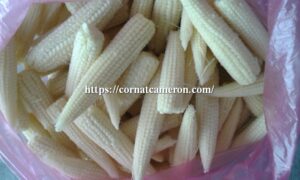
Origin
Baby corn is basically corn that is harvested earlier. At this point in time, the ears are very small and not fully formed. This miniature size and look causes it to be named “candle corn” in some of the Thai cookbooks. Baby corn is exceedingly popular in Asian cuisine and can be found in stir-fried dishes with other vegetables. Baby corn can be produced either by seeding with a variety that can produce only baby corn or by harvesting it early. Baby corn does sometimes lack some of the health benefits of mature corn.
Baby Corn versus Regular Corn
Baby corn is a lower glycemic index food than regular corn. This means it will contribute fewer carbohydrates to your diet overall. However, because it is plucked earlier this means baby corn contains much fewer Carotenoids than regular corn. A Washington State University study showed that the yellower corn is the more Carotenoids it contains; baby corn is plucked while it is much whiter. Carotenoids can reduce the risk of heart disease and cancer.
Low-Calorie Corn
Baby corn is a low-calorie vegetable with 25 calories per 1/2-cup serving. By comparison, a 1/2-cup serving of regular corn kernels, which is considered a starchy vegetable, has 80 calories. Baby corn has a similar calorie content to other non-starchy vegetables such as broccoli, cauliflower, and green beans. As a low-calorie food, baby corn can fill you up without costing you too many calories, making it a good choice for those trying to lose or maintain a healthy weight.
Low-Carb, High-Fiber Corn
Just like the calories, baby corn also has a lower carb count than regular corn but is still a good source of fiber. A 1/2-cup serving of baby corn contains just 4 grams of carbs, versus 15 grams in 1/2-cup of regular corn kernels, and 2 grams of fiber. Getting more fiber in your diet offers a number of health benefits, including a lower risk of heart disease and Type 2 diabetes. The fiber in foods such as baby corn also helps keep you feeling full and has been associated with lower body weights.
Some Protein and Fat-Free
A 1/2-cup serving of baby corn contains 2 grams of protein and 0 grams of fat. Both protein and fat are essential nutrients, but if you eat a variety of foods you should be able to more than adequately meet your needs. It is recommended that you get 10 to 35 percent of your calories from protein and 20 to 35 percent of your calories from fat. Protein is needed to make new cells and fat acts as a source of energy.
Watch the Sodium
As for canned food, baby corn is a source of sodium. A 1/2-cup serving of baby corn contains 280 milligrams of sodium. If you’re concerned about the sodium content, you may be able to find fresh baby corn at your local farmer’s market. Too much sodium in the diet raises blood pressure and may cause fluid retention. Ideally, your daily intake of sodium should be less than 2,300 milligrams a day.
Vitamins and Minerals
Baby corn is nutrient-rich, and a 1/2-cup serving meets 4 percent of the daily value for vitamin A and iron, and 2 percent of the daily value for vitamin C. As essential nutrients for your immune system, both vitamins A and C help your body fight infection. Your body needs iron to transport oxygen from your lungs to the rest of your body.
Baby corn is an excellent source of B vitamins. Baby corn provides folic acid, thiamin, riboflavin, and niacin. B vitamins contribute to digestion. Folates are also used in the amino acid synthesizing process. Breaking down and synthesizing amino acids is vital to building new cells, such as red blood cells. Folates have also been shown to be linked to significantly reducing the risk of developing Alzheimer’s. Folates, in general, are associated with brain function, have been associated with improved memory, and slowed cognitive decline.
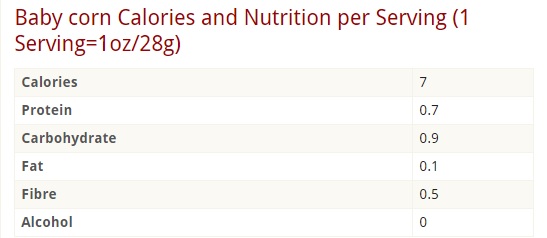
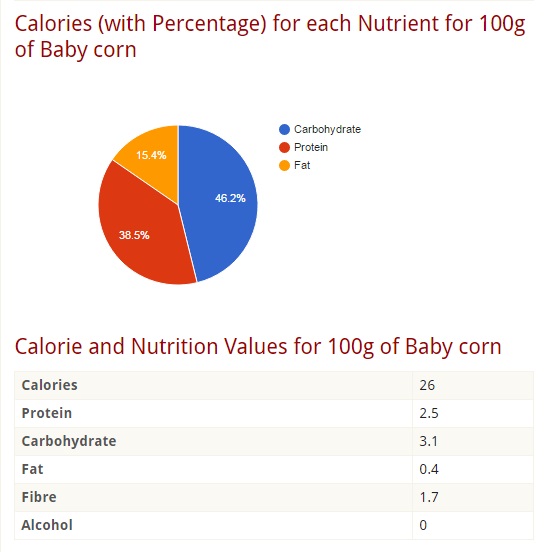
Share with your friends if you like this post. Tell us your opinion in the comment below.
Discover more from Sweet Corn Specialist at Cameron Highlands, Malaysia
Subscribe to get the latest posts sent to your email.
